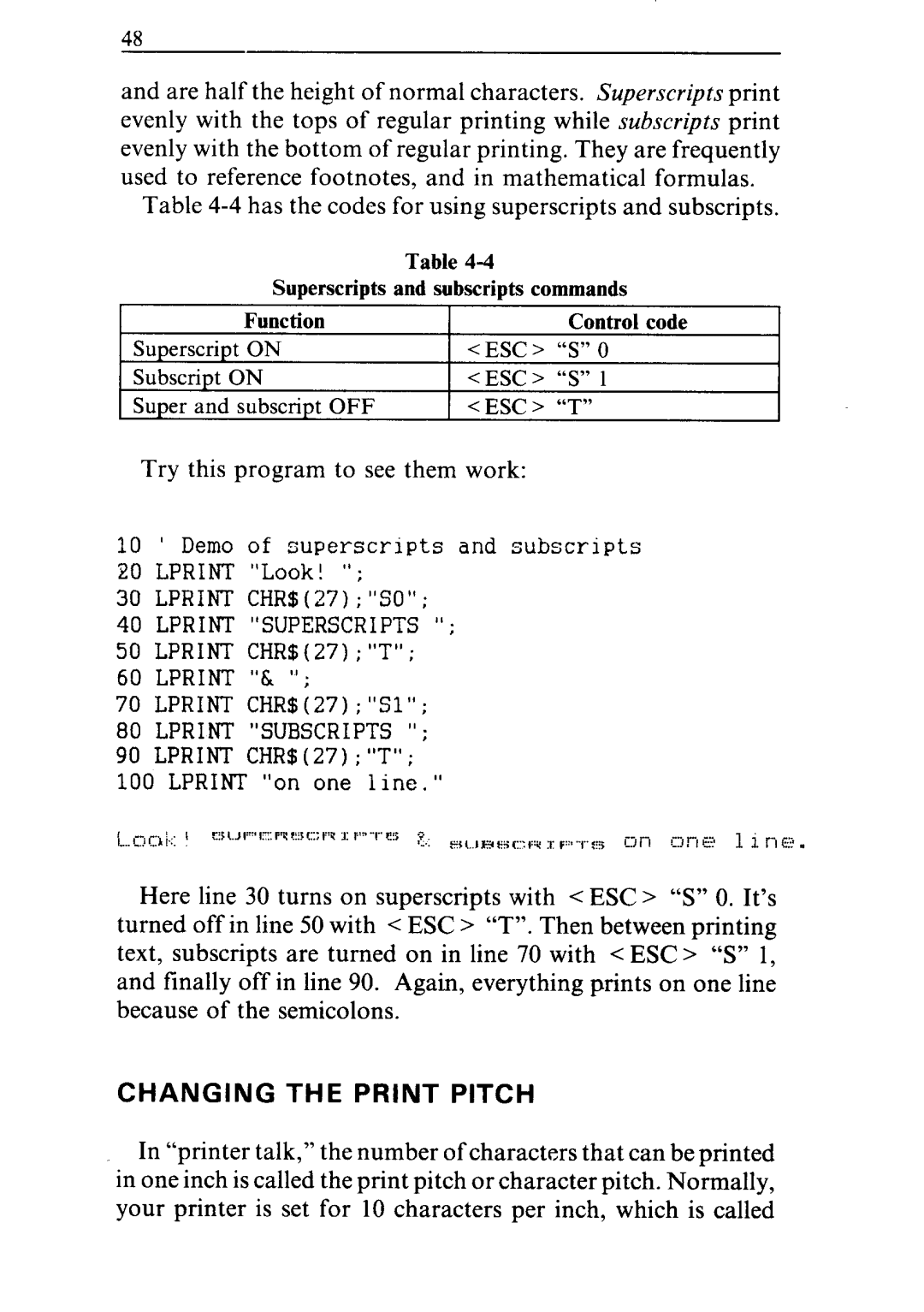
and are half the height of normal characters. Superscripts print evenly with the tops of regular printing while subscripts print evenly with the bottom of regular printing. They are frequently used to reference footnotes, and in mathematical formulas.
Table
Table
Superscripts and subscripts commands
Function
Superscript ON
Subscript ON
Super and subscript OFF
Control code
<ESC > “S” 0
<ESC > “S” 1
<ESC > “T”
Try this program to see them work:
10 ’ Demo of superscripts and subscripts
20 LPRINT "Look! 'I;
30 LPRINT CHR$(27);"SO";
40LPRINT “SUPERSCRIPTS ‘I;
50LPRINT CHR$(27);“T”;
60LPRINT “& ”;
70LPRINT CHR$(27);“Sl”;
80LPRINT “SUBSCRIPTS ‘I;
90LPRINT CHR$(27);“T”;
100LPRINT “on one line.”
Here line 30 turns on superscripts with < ESC > “S” 0. It’s turned off in line 50 with < ESC > “T”. Then between printing text, subscripts are turned on in line 70 with < ESC > “S” 1, and finally off in line 90. Again, everything prints on one line because of the semicolons.
CHANGING THE PRINT PITCH
In “printer talk,” the number of characters that can be printed in one inch is called the print pitch or character pitch. Normally, your printer is set for 10 characters per inch, which is called
